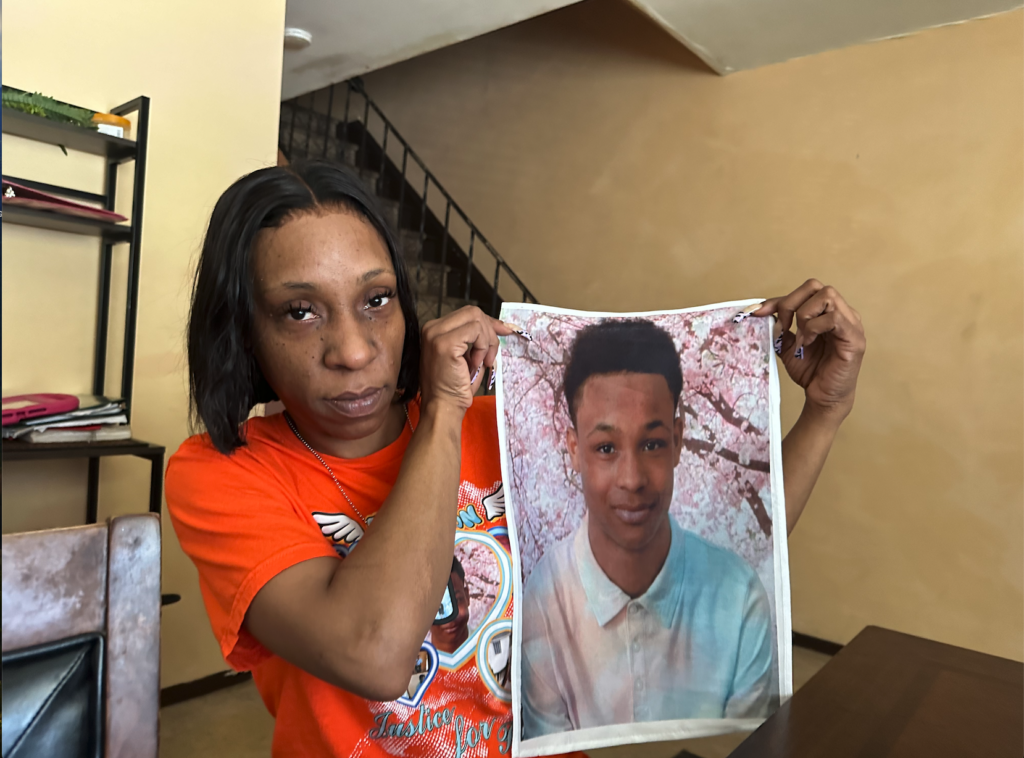Riverhead Board of Education changes its mind and votes ‘yes’ on a tenure application

During a special meeting on Thursday, the Riverhead Board of Education reversed a decision to reject the tenure of secondary English as a New Language director Denise Stevenson.
In a 5-2 vote, the board granted the tenure, which goes into effect Sept. 20.
Ms. Stevenson’s tenure was the only one on a list of 37 candidates that was rejected during a board meeting Tuesday.
Board members Chris Dorr, Laurie Downs, Brian Connolly and Therese Zuhoski all initially rejected the appointment. Ms. Downs and Mr. Connolly changed their votes to “yes” Thursday.
Explaining his stance at the start of Thursday’s meeting, Mr. Dorr said board members received the list of tenure recommendations Friday. “There was no discussion or able time to do any research on this,” he said.
Mr. Dorr and Ms. Zuhoski both cited data from the state Education Department that suggests ENL students are dropping out at higher rates.
According to data from 2019 compiled by the state education department, Riverhead has an overall graduation rate of 79%. But for English Language Learners, the graduation rate is just 26%, compared to an 86% graduation rate for non-ELL students.
“Our data for [the ENL population] is abysmal to say the least,” Mr. Dorr said. “For someone who is the director of the program it should be taken seriously into consideration. I’m pretty sure that if a classroom teacher had 66% of their kids not passing, we would not put them up for tenure.”
Ms. Zuhoski also wished to table the resolution to allow for more discussion and research into the issue.
“I definitely expressed my concern to the superintendent prior to [Tuesday’s meeting] questioning why we were tenuring these fall positions in this June meeting,” she said. The state data, she said, gives her pause. “I feel pressured by the district to make a decision, 24 hours after I initially voted,” she said.
School district counsel Christopher Venator during the Zoom call presented several options to the board, including tabling the measure or approving the resolution. He warned against taking action to deny the appointment, citing Section 3031 of the state education law, which requires employees to be notified at least 30 days in advance of the denial.
The employees may then request a written statement giving the reasons for the decision, according to the statute.
Ms. Zuhoski and Mr. Dorr were the only two board members to support tabling the vote.
Board member Susan Koukounas said in October the board was presented with an “qualitative narrative” on the ENL program that covered the strengths, weaknesses, state requirements and annual goals of the program.
She acknowledged the lack of discussion with regard to the tenure appointment but argued that the data is being used to “further an unknown, underlying cause.”
“What is surprising to me is our board members are part of the opt out movement. A movement that disapproves of the use of one state statistic as part of an annual evaluation,” Ms. Koukounas said.
“We do not make decisions based on emotion and personal gain. There’s something going on here,” she continued.
“If we’re going to have a detailed discussion about a matter of personnel, I think we should do that in the executive session,” Mr. Venator said. “I don’t want to get into individual evaluations of employees.”
“I am not going there,” Ms. Koukounas replied. “What I’m saying is do not evaluate on a state statistic.”
Ms. Stevenson, who has held the position since 2016, currently makes $138,892, according to SeeThroughNY data.
At Tuesday’s meeting, board members also pulled a second tenure appointment off of the list of consent agenda items to weigh in on separately. In a split 4-3 vote, the board narrowly approved tenure for Christine Tona, who currently serves as the assistant superintendent of curriculum and instruction.
Ms. Downs, Mr. Connolly and Ms. Zuhoski all voted against the appointment.
Thursday’s special meeting also saw the board approve the results of the failed budget vote. They did not discuss what the next steps will be; however Gov. Andrew Cuomo signed an executive order June 9 that will permit school districts to conduct revotes after July 9.
The governor’s executive order didn’t specify how a revote would be conducted, instead stating the process would be determined by a future executive order.
This year’s school budget and board elections were conducted entirely via absentee ballot due to the coronavirus pandemic.








